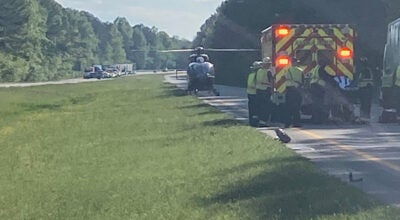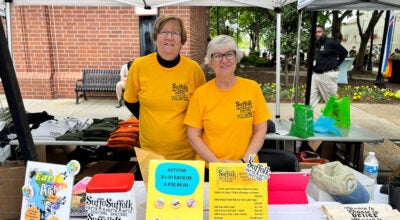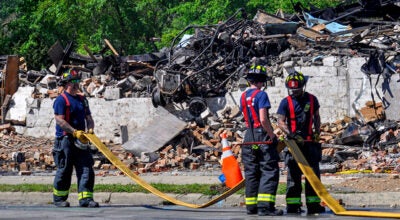Bill targets scrap thieves
Published 9:45 pm Saturday, January 26, 2013
An area representative in the Virginia General Assembly has proposed legislation to help police catch metal thieves. The law would target offenders by strengthening documentation requirements for scrap buyers, at least one of whom in Suffolk is not impressed.
Delegate Rick Morris, R-Carrollton, the bill’s co-chief patron, said the proposed legislation arose from a forum he held with law enforcement officials last year.
“This is one of the issues that several brought up,” he said.
Current state law requires scrap metal purchasers like James Arzillo, of Arzillo Industries on Portsmouth Boulevard, to maintain records with seller identification details and descriptions of items bought.
The law applies to purchases of “nonferrous scrap, metal articles, or proprietary article(s)” — things like the copper piping and air-conditioning units that are commonly stolen and sold as scrap. Police can request the information to assist with investigations.
Under the proposed revision, however, Arzillo and his brethren would also have to keep photos or video footage of all “proprietary articles” purchased — except those from authorized scrap sellers – for at least 30 days. Police could also request this data.
“We have video already, but we don’t have to document every item coming in,” Arzillo said.
“It seems like it’s a burden. We’d have to upgrade some of our systems. They are putting the burden on the business owner, and they really need to focus on the people who are stealing it.”
Plus, Arzillo said, it would help if police notified buyers like himself of metal thefts so they would have an idea of what not to buy.
“If somebody brings 50 pounds of pipe in, I’m not going to know where it comes from,” he said.
Commonwealth’s Attorney Phil Ferguson said he supports any means of helping catch offenders who steal things like air conditioners, railroad ties and farm equipment, selling them for scrap often after stripping them down to evade suspicion.
“Without a doubt, these days you can get a fair amount of money for scrap metal, selling it to scrap metal places and dealers,” he said.
“Some of the companies in Suffolk (buying scrap) are doing a better job of documenting the sales when they come in.” In many cases, they already take photos, he said.
Ferguson notes that theft in Suffolk in general has risen in the past year or so, while violent crime has come down.
“Delegate Morris is doing a very good thing addressing this,” he said. “It’s the right approach … and I certainly support what he’s doing.”
Morris had originally proposed legislation requiring companies like Arzillo’s to report qualifying purchases to police the next business day; but that clause is absent from another similar bill it was rolled into.
“It’s because not only farmers are getting their property stolen, but also homeowners and homebuilders and anybody that has any sort of an item with metal in it,” Morris said.
Some purchasers, whom he described as “a few bad actors,” are not following the identification law, he said. “For example, a peanut trailer … was listed as various scrap aluminum items” in records, he added.
“What we’re trying to do is just put a little more scrutiny on it. … I feel confident that it will pass overwhelmingly. It’s just commonsense.”
Illustrating how metal theft exasperates citizens, last September, Suffolk business owner Maurice Dennis had a sign made, reading, with punctuation added for clarity: “Low Life. You stole from the Cub Scouts. ‘AK’ will welcome you back.”
He resorted to this after two truckloads of aluminum, copper wire and a floor jack were stolen from the back of his property on Godwin Boulevard.
Dennis had been collecting the aluminum with his grandson for a Cub Scout project. He would stake the sign beside the road every day and bring it in at night. “I was rather disgusted and didn’t know what to do, so I had a sign made and put it up there,” he said at the time.
For a scrap purchaser to knowingly break the documentation laws is currently a Class 1 misdemeanor, or a civil offense with a fine of up to $7,500 if the violation is negligent, rather than intended.






